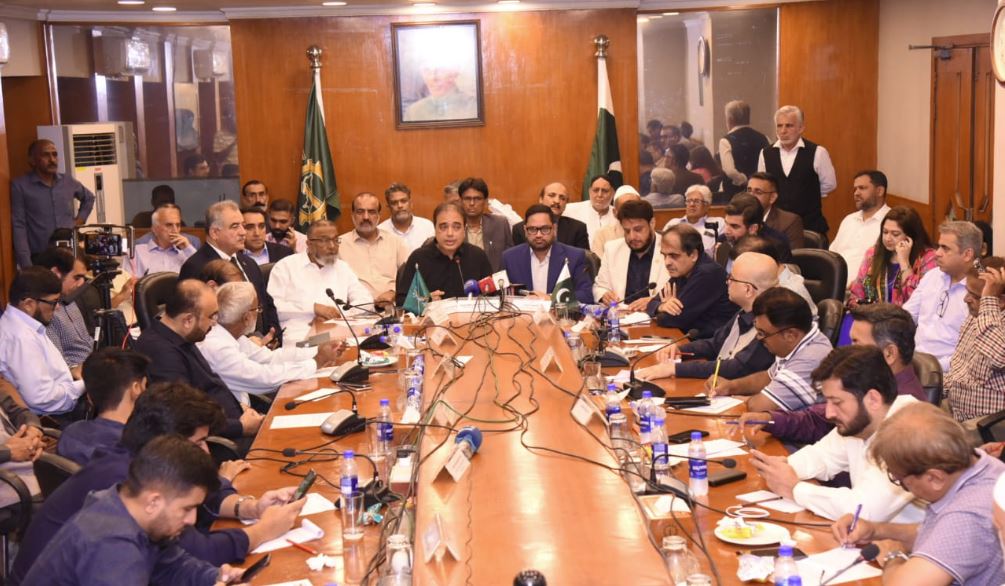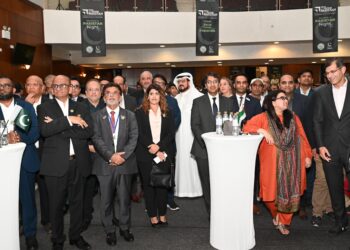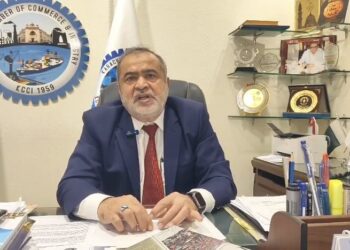The controversial powers granted to tax officials
are excessive, subjective, and a source of
harassment for the business community
Staff Reporter

Karachi: The Federation of Pakistan Chambers of Commerce and Industry (FPCCI) has strongly rejected the controversial powers granted to tax officials in the Federal Budget 2025–26, calling them excessive, subjective, and a source of potential harassment for the business community.
FPCCI President Mr. Atif Ikram Sheikh criticized the new provisions allowing tax authorities to withdraw funds from business accounts and raid premises without prior notice. He demanded the federal government withdraw these measures before the budget is passed to restore business confidence.
“The tax target cannot be achieved without engaging industrialists and exporters in a consultative process,” said Atif Ikram Sheikh. “The budget lacks measures to support the Prime Minister’s vision for export-led growth.”
Human Intervention Undermines Fair Taxation
The FPCCI President emphasized that excessive human interaction in tax collection processes undermines fairness, transparency, and impartiality.
“Globally, minimal human-to-human interaction ensures fair tax practices. Too much discretion in the hands of tax officials opens the door to misuse,” he added.
Exporters Demand Fixed Tax Regime Restoration
FPCCI Senior Vice President Mr. Saquib Fayyaz Magoon urged the government to restore the Fixed Tax Regime (FTR) for exporters in its original form for a longer duration. This, he noted, would provide policy certainty and improve Pakistan’s investment competitiveness.
He also called for an inclusive Export Facilitation Scheme (EFS) that accommodates local manufacturers, warning that failure to do so could disrupt supply chains and damage Pakistan’s competitiveness in global markets.
Neglect of High-Growth Sectors Criticized
Mr. Magoon expressed disappointment over the government’s failure to include special incentive packages for high-potential sectors like IT & ITeS, Mines & Minerals, and Fishing. These sectors, he said, can generate exponential growth and jobs if properly supported.
FPCCI Vice Presidents Echo Concerns
Mr. Asif Sakhi, Vice President FPCCI, urged tax authorities to adopt a respectful and facilitative approach rather than blaming businesses for tax evasion.
Mr. Aman Paracha, VP FPCCI, proposed forming a high-powered fact-finding committee to identify why the FBR failed to meet FY25’s tax targets.
Mr. Nasir Khan, also VP FPCCI, warned that many businessmen have already moved operations abroad due to economic instability and rising business risks in Pakistan. He stressed that those remaining face serious challenges in running factories without incurring losses.
FPCCI Opposes SEZ Restrictions
The FPCCI also objected to the 10-year restriction on tax benefits for Special Economic Zones (SEZs) or until tax year 2035, whichever comes first. The chamber noted that it typically takes 2–3 years to establish an industry, meaning businesses won’t have sufficient time to benefit from these incentives.
“To attract foreign and domestic investment, this period should be extended to at least 20 years, ideally 30 years,” the FPCCI said.






















